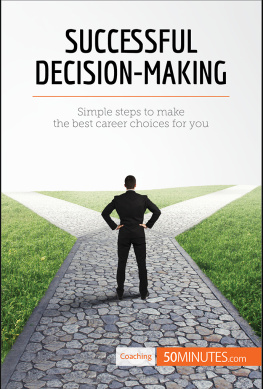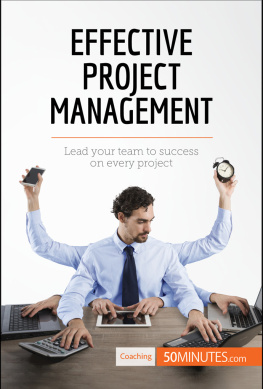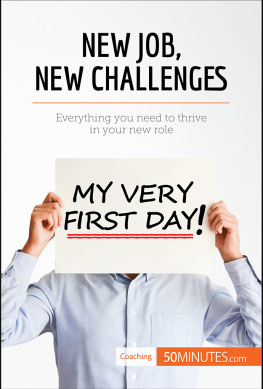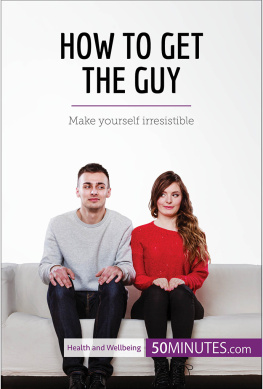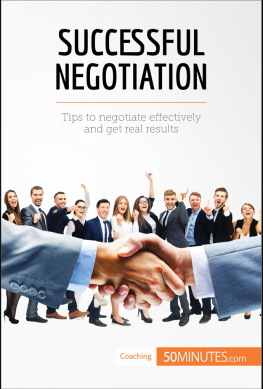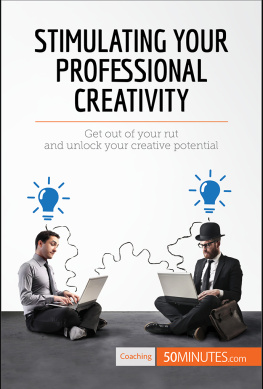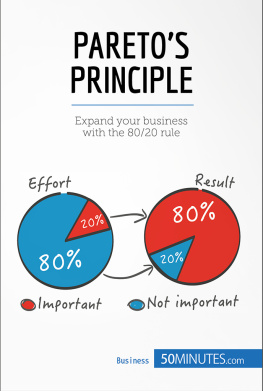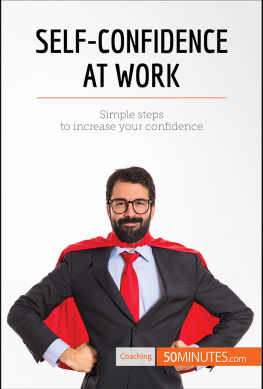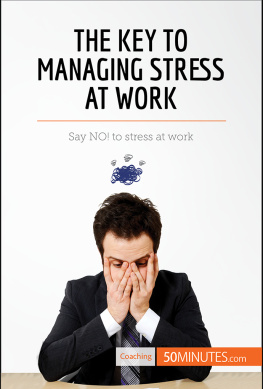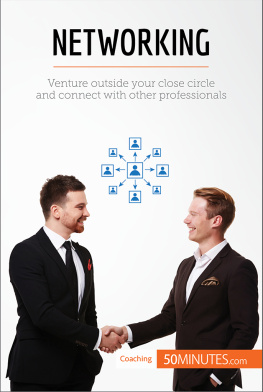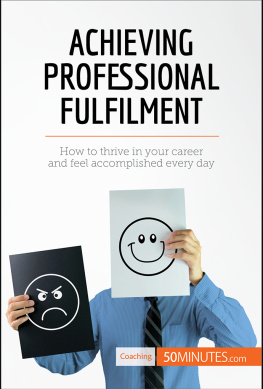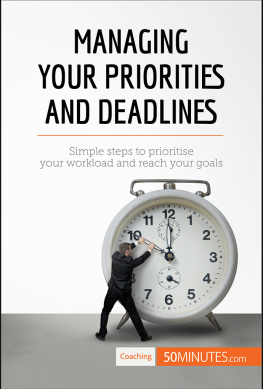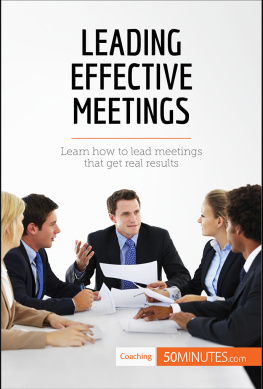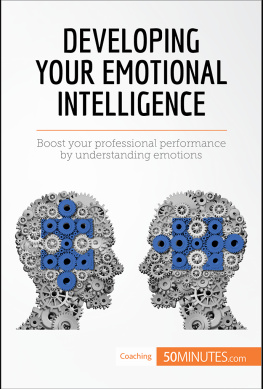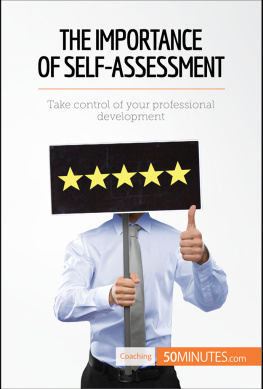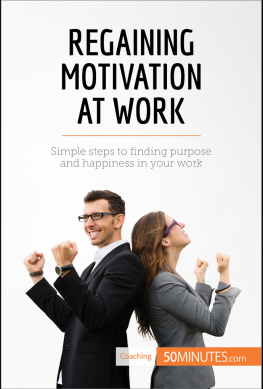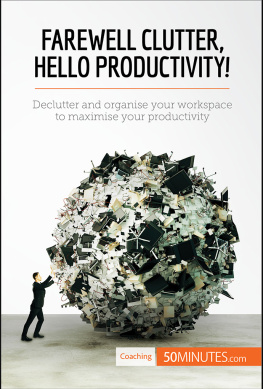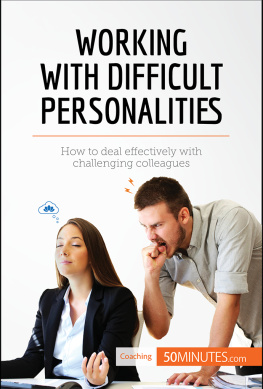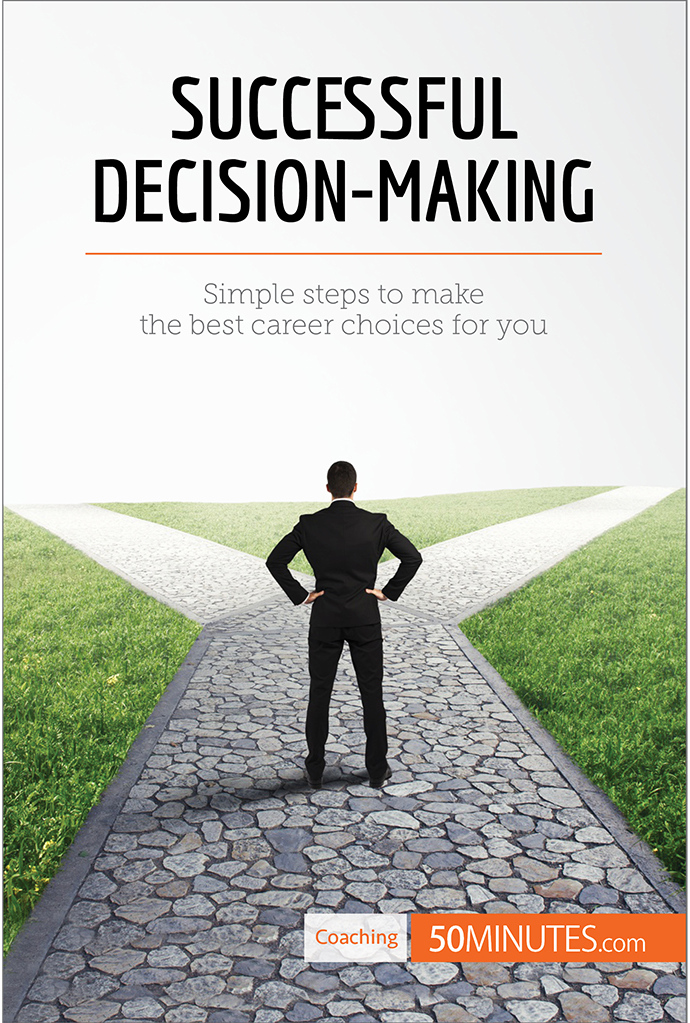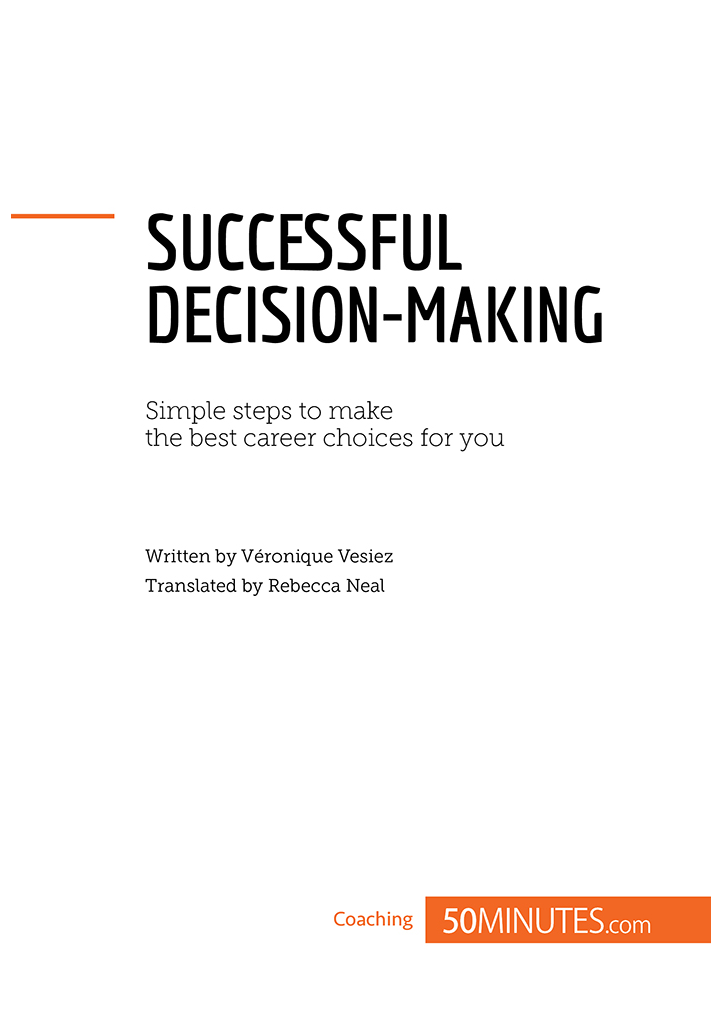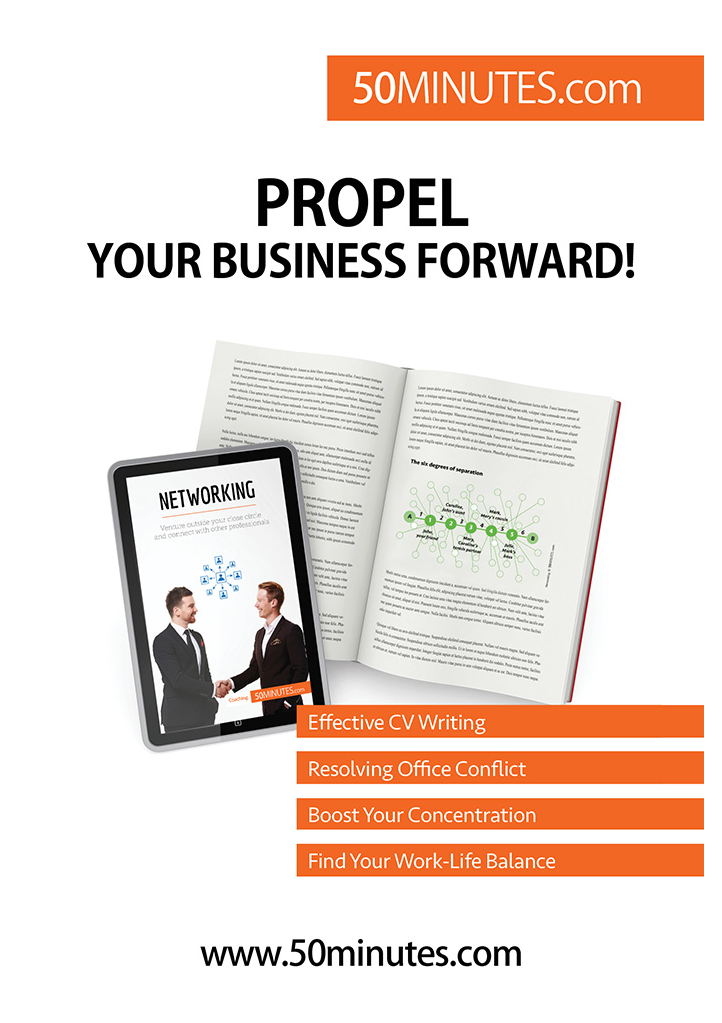We all have to make professional decisions at some point: choosing a career, changing job, setting up a business, changing our work arrangements, and so on. Whether they are big or small, and whether they were our idea or were imposed by someone else, these choices often make us uncomfortable or even stressed if we are struggling to decide.
The French writer Andr Gide (1869-1951) claimed that choosing inevitably means rejecting other options which could have turned out to be better, thus highlighting how difficult it can be to make a decision. As well as abandoning other options, making a decision means facing up to the unknown and taking a risk (since the outcome is not guaranteed), and consequently setting off in a particular direction. It is a necessary gamble on the future.
Learning to make decisions is therefore essential: they allow us to change a situation we are not happy with, preserve what we already have or make progress towards our goals, without depending on other people.
However, it can be difficult to overcome indecision, feel certain about our choices and be completely comfortable with the path we have taken. Choosing what will make us happy is not as easy as it may seem. In just 50 minutes, you will discover all the practical advice you need to make fulfilling personal choices and stick to them.
Making the right choices: the basics
Why is it so difficult to make a decision?
The limits of a rational approach
Research in cognitive science has shown that we make all our decisions in two phases. Firstly, we gather information and examine the options available, which enables us to eliminate some of them. We then compare the remaining options to evaluate the level of commitment, the actions necessary and the long-term consequences of each of them.
The more important a decision seems to us, the more we try to approach it rationally. This is illustrated by the well-known method of drawing up two columns to record the pros and cons of each option. This allows us to clarify the situation by sorting through the advantages and disadvantages and evaluating the consequences for us and our environment. However, this is often not enough for us to decide. Furthermore, overthinking things can stop us from making a choice, leaving us feeling anxious and guilty.
T HINK, BUT DO NOT OVERTHINK
Researchers in neuroscience have discovered that the more information we accumulate about a subject, the more we risk drifting away from the crux of the matter. Indeed, our prefrontal cortex, which is responsible for reasoning, can only deal with a certain amount of information at once. Too much information can therefore stop us from thinking clearly and lead us away from what really matters.
The possibilities are infinite
In days gone by, we lived as part of group and followed the path that had been set out for us since birth. Group cohesion and balance were prioritised above personal fulfilment. By introducing the ideas of freedom and equality, revolutions and democracy emphasised the importance of the individual within society and made each person responsible for their own happiness. The philosopher and researcher Michela Marzano (born in 1970) explains: Freedom has become a duty, not just a possibility. But by becoming an obligation, it has lost its meaning! (cited in Pronnet, 2010).
As a consequence, we often feel overwhelmed by the infinite number of possible choices before us and the crushing weight of responsibility on our shoulders.
The re-emergence of fear
When we make choices, there are some illogical factors, in particular our fears, which can prevent us from making a decision. According to the bestselling Canadian author and founder of the Listen to Your Body school Lise Bourbeau (born in 1941), there are real fears (when we are facing a real danger) and unreal fears, such as:
- fear of taking risks;
- fear of making mistakes;
- fear of giving something up;
- fear of feeling trapped;
- fear of disappointing others.
Unreal fears are created by our imagination and are linked to beliefs which generally developed during our childhood as a result of things we experienced, observed or learned. In order to prevent these painful experiences from happening again, we have developed a range of behaviours that aim to protect us, but which also leave us trapped.
L IMITING MESSAGES
Based on the work of Eric Berne (Canadian psychiatrist, 1910-1970), the founder of transactional analysis, the American psychologist Taibi Kahler (born in 1943) has identified five behaviours called drivers which influence our behaviour:
- be strong,
- be perfect,
- hurry up,
- try hard,
- please others.
These messages, which we internalise as children through our upbringing, our culture and our experiences, are at the root of the limits we set for ourselves. By identifying and accepting them, we learn to become who we really are and not who we are expected to be.
The fear of change is also present and deeply rooted in all of us. We tend to like our habits because they are reassuring. Change means leaving our comfort zone and taking a step into the unknown, without being sure that the choices we have made are the right ones.
In his book Who Moved My Cheese? , the American author Spencer Johnson (born in 1940) highlights our behaviour in the face of lifes difficulties and challenges through the story of four characters (two mice and two little people):
- Sniff, who detects change as soon as the first signs appear;
- Scurry, who speeds up the action;
- Hem, who fear and rejects change as he is afraid that it will harm him;
- Haw, who is able to adapt when he understands that change may be for the better.
Our attitude to change therefore plays a decisive role when we have to make a professional choice.
Not knowing ourselves
The thing that we are looking for through our choices is probably happiness.
The philosopher, sociologist and writer Frdric Lenoir (born in 1962) believes that the speed of modern life stops us from staying in touch with our deepest thoughts and desires. We want to do everything, but we do not have the time.
T HE COMPONENTS OF HAPPINESS
According to Lenoir, scientists agree that happiness comes from the following factors:
- 50% genetics (genes, heredity);
- 40% our decisions and actions (our life choices, the meaning we give to life, our commitments, the people we meet, the things we do);

